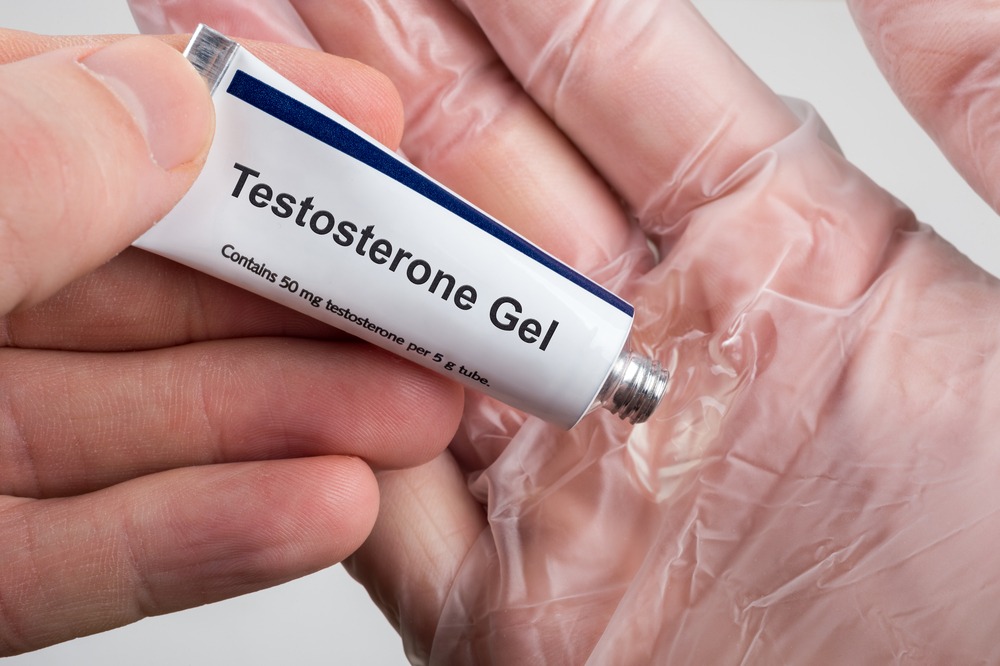 Many athletes are in the pursuit of training, nutrition, and other tactics that will allow them to compete harder and longer. In recent years, bioidentical hormones and natural products have become desirable to athletes looking for a ‘healthier’ edge, but it’s important for athletes subject to anti-doping rules to recognize that even products that seem natural can be prohibited under the rules. For example, any therapy – even bioidentical hormone therapies – that contain testosterone or other prohibited substances are prohibited.
Many athletes are in the pursuit of training, nutrition, and other tactics that will allow them to compete harder and longer. In recent years, bioidentical hormones and natural products have become desirable to athletes looking for a ‘healthier’ edge, but it’s important for athletes subject to anti-doping rules to recognize that even products that seem natural can be prohibited under the rules. For example, any therapy – even bioidentical hormone therapies – that contain testosterone or other prohibited substances are prohibited.
Learn more about the prohibited status of bioidentical hormones and pellet therapy here:
What are bioidentical hormones?
Bioidentical hormones are compounds that have the exact same chemical structure as the natural hormones found in the human body. They can be made from extracts of plants or animals and then modified in a lab to be chemically identical to the hormones in the body, or they could be synthesized in a lab. The term bioidentical does not necessarily mean something is more natural or better in any way. It just means that the chemical structure is identical to the hormone that the body produces naturally.
Are bioidentical hormone replacement therapies prohibited?
There are many types of bioidentical hormone replacement therapies (BHRT) available, and you may believe that if the hormones are “natural” and match your body’s hormones, then it is ok to use in sport. But whether something is bioidentical does not determine whether it is prohibited or permitted.
For example, “bioidentical” testosterone is prohibited at all times, along with any chemically modified preparations, including testosterone cypionate and testosterone enthanate. This is also true no matter the route of administration: Topical gels (Androgel, Fortesta, Testim), patches (Androderm), pills (Striant, Covaryx), or injections are all prohibited even if you are only using a very small dose and even if the testosterone is bioidentical.
Hormone replacement therapies (HRT) involving estrogen, estradiol, or progesterone to treat the symptoms of menopause are not prohibited. However, any therapy (even bioidentical hormone therapies) that contains testosterone (e.g., Covaryx, EEMT), dehydroepiandrosterone (DHEA) (e.g., Intrarosa), or any other prohibited substance is prohibited at all times.
What is pellet therapy?
Pellet therapy is when a hormone pellet is inserted under the skin with the purpose of providing a long-term slow release of one or more hormones. Pellet therapy is one of the many ways you can receive hormone replacement therapy and is a popular treatment plan for patients in wellness, anti-aging, and hormone clinics.
The pellets can be FDA-approved drugs (Testopel), or they can be custom made (not FDA-approved) in a compounding pharmacy (e.g., BioTE and many others). Subcutaneous pellets of testosterone are prohibited at all times.
Is pellet therapy prohibited in sport?
Pellet therapy is prohibited in sport if the pellet contains a substance that is prohibited.
What if a doctor prescribes bioidentical hormone therapy?
Athletes should always check their medications on GlobalDRO.com to find out the anti-doping status. This is true for bioidentical hormones, compounded medications, and any other type of medication (pill, injection, pellet, cream, gel, or patch) even if the doctor prescribes it and/or claims that it is “all-natural.”
Are Compounded Pellet Therapies FDA-approved?
No, because compounded medications in general are not FDA-approved. The FDA allows compounded medications to serve patients that cannot use a standard drug form of a medication due to allergies, dosage limitations, or other medical issues.
Recently there has been an increased interest in personalized medicine and individually prepared compounded medications. Athletes considering a compounded pellet therapy should be aware that they are not evaluated for safety or efficacy by the FDA. In 2020, the National Academy of Science recommended that compounded hormone pellet therapies should be added to the list of things compounding pharmacies are not allowed to make because of concerns about the safety and complexity of the drug delivery mechanism, the inconsistency in production methods, and unknowns around dosages.
The report also raises caution regarding the use of multihormone compounded medications. While it may be convenient for patients to have multiple hormones combined into a single pill or other delivery mode, the more hormones that are included in a formulation, the greater the potential for adverse effects due to drug interactions or other issues.
In 2018, the FDA investigated BioTE Medical and found 4,202 adverse events associated with compounded hormone pellets that were not previously reported to the FDA. Possibly associated adverse events (side effects or bad health outcomes related to a medication) with compounded hormone pellets included: endometrial cancer, prostate cancer, strokes, heart attacks, deep vein thrombosis, cellulitis, and pellet extrusion. Athletes should be aware that, in addition to anti-doping risks, compounded pellet therapies can pose health risks even though they are advertised to be safe and healthy.
More questions?
For questions about specific products, substances, and methods, contact USADA’s Drug Reference Line at drugreference@USADA.org or call (719) 785-2000, option 2.
Read more Spirit of Sport blog posts



